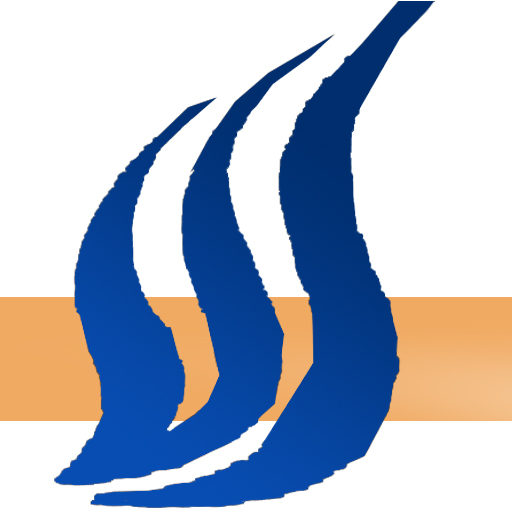Printout Guides and downoad MP3s to help you prepare. The program and schedule of events at our Thornhill synagogue are in the bulletin below.
The Talmud teaches that “Whoever mourns over Jerusalem will merit to see her
happiness, and whoever does not mourn over Jerusalem will not merit to see her
happiness, May we all merit to experience the happiness of Jerusalem soon!
 The Laws of Tisha B’av, 2021 Program & Schedule
The Laws of Tisha B’av, 2021 Program & Schedule Listen to Torah classes on Tisha B’av
Or Download the MP3 files:The “Holiday” of Tisha B’av, The Laws of Tisha B’av , 132 Finding the Fault July 2013 Parsha Class
Listen to Torah classes on Tisha B’av
Or Download the MP3 files:The “Holiday” of Tisha B’av, The Laws of Tisha B’av , 132 Finding the Fault July 2013 Parsha Class Get familiar with tunes we will daven:
Get familiar with tunes we will daven:- Download the MP3song files: Chasdei Hashem, Shifchi Kamayim, Al Eileh Ani Bochiya
The Laws of Tisha B’av – 2021:
The Laws of the Nine Days – 5781:
1. The Talmud teaches us “When the Jewish month of Av enters, we decrease our happiness.
2. The Jewish month of Av begins Friday night, July 9th at sunset. This begins a more intense period of national
mourning, which concludes the day after Tisha B’av, which is the day after Sunday , July 18th.
3. All the restrictions that began at the beginning of the Three Weeks are still in force, but they are now intensified.
4. The Talmud explains that one decreases happiness by:
▪ Decreasing one’s business activities
▪ Refraining from construction and planting intended for joyous reasons.
▪ Not conducting weddings or making a festive meal to celebrate an engagement.
5. Any construction not necessary for one’s dwelling but performed for expansion is prohibited. Similarly,
any improvement to the appearance of a house such as painting, hanging new drapes, wall papering and
all house decorating can not be done during the Nine Days.
6. Certain types of expansion building would be permitted if it were for necessary living space to accommodate more
people living in the home. Consult your local Rabbi in this issue.
7. If you hired a non-Jewish contractor to build an addition, and the contractor wants to work during the Nine Days, the Jew is not required to prevent him from doing so. Preferably, one should offer the contractor some financial
compensation to refrain from working during the Nine days, but one is not required to offer a significant amount of
money to get him to wait until after Tisha B’av.
8. It is permitted to weed, water, or mow the lawn during the Nine Days, since these activities are not for enhancement. It is also permitted to plant and maintain a vegetable garden during the Nine Days. Plants for pleasure may not be planted.
9. One may not wear new clothes during the Nine Days, nor may one tailor or purchase new clothes or shoes.
10. One who does not have appropriate shoes to wear on Tisha B’av may buy them during the Nine Days.
11. Similarly, it is prohibited to dry-clean clothes or iron them.
12. We refrain from changing tablecloths, towels, and bed linens during the Nine Days, unless it is absolutely necessary.
13. It is permitted to repair shoes and clothes during the Nine Days.
14. We refrain from doing laundry and wearing freshly laundered clothing during the Nine Days.
15. Therefore, one should prepare before Friday night, July 9th at sunset sufficient clothing already worn since it was last laundered. This is ideally accomplished by putting on and wearing a garment for at least a short while [1/2 hr.] Towels should also be used at least once before the Nine Days begin in order to be able to use them.
16. If one’s clothing becomes sweaty or soiled during the Nine Days, one is permitted to change into clean clothes.
17. It is permitted to launder children’s clothes and linens during the Nine Days.
18. It is permitted to spot-clean a garment if one is concerned that the stain will set. Furthermore, it is permitted to soak a garment that is dirty without completing its laundering in order to make it easier to clean after Tisha B’av.
19. We do not bathe or go swimming for pleasure during the Nine Days, but bathing for hygienic and health purposes is permitted. One may go to the Mikveh. Washing only one’s face, hands, or feet with cold water is permissible at all
times.
20. We do not eat meat or drink wine or grape juice during the Nine days. A sick person may eat meat, under doctor’s
orders. It is permitted to eat meat or drink wine for all Shabbos meals or at a Mitzva meal [such as a Bris or Siyum,
etc.].
21. One may not eat fleishig [meat] leftovers from Shabbat meals or of a Mitzva meal during the remaining Nine Days. One may not eat meat for Melava Malka.
22. It is permitted to use wine vinegar for cooking. It is also permitted to drink beer, whiskey, and other alcoholic beverages.
23. One is permitted to bathe and to put on freshly laundered clothing in honor of the Shabbat.
24. One can make Havdalah on wine or grape juice. If a young child present is old enough to make a blessing but not old enough to understand that we do not eat meat during the Nine Days, that child should drink the Havdalah cup. If there is no such child available, the person reciting Havdalah should drink the wine or grape juice himself. Others have a custom to use beer for Havdallah.
25. A Jew should avoid scheduling litigation / adjudication during the Nine Days, since this is a month in which the Mazel for Jews is bad.
26. Polishing shoes is permitted. Shining shoes in honor of the Shabbos is also permitted.
27. The Midrash teaches that Hashem will bring forth ten new creations in the era of Moshiach [e.g. death will perish
forever, everyone will be joyful, and there will be an end to all sighing and worry]. The Kaf HaChayim states that
everyone who meticulously observes the laws of the first ten days of Av, thereby demonstrating his personal mourning
over the destruction of Yerushalayim, will merit witnessing these ten miracles. May we all merit seeing these miracles
speedily and in our days.
© 2021 Rabbi Yossi Michalowicz
